With PRIM Logix, we want to do more than just offer a reliable, complete, and highly customisable software for every staffing agency. We put our expertise at the service of our clients, to accompany them in their digital transformation.
This notion is a buzzword in the business world. But perhaps it should be even more central to corporate growth strategies?
Indeed, are you familiar with this study, cited by the HEC Montreal’s Gestion magazine and conducted in 2019? It shows that less than half of the 400 companies audited by the Ministry of the Economy and Innovation had a strategic plan.
Even more blatantly, only 1 in 10 companies had started a digital transformation plan.
And only a quarter of the companies surveyed had a digital skills training plan for their employees.
Two years later, the evidence shows that companies “that made the digital shift before the pandemic created strategic advantages over their less technologically mature competitors“.
Where does your staffing or recruitment agency stand in the digital shift?
Whether you’ve started early, are ready to go or are still hesitant, the first thing to do is the same. It is to have a goal.
But to do this, you need to be sure you know what you are talking about. Dematerialisation, digitalisation, and digital transformation are not interchangeable notions. I’m going to introduce you to these new buzzwords and explain the differences between them.
Did you know that dematerialisation has been part of our daily lives for more than twenty years?
This notion is probably the best known and the best mastered. Perhaps because it has been present in our environments for longer. Dematerialisation is the transformation of information from a physical format into a digital version.
In practical terms, dematerialisation is the process of taking analogue information, such as documents, sounds or photographs, and converting it into a digital format that can be stored and accessed on computers, mobile phones, and other digital devices.
Whether you stream music, watch movies on VOD or scan and share documents in PDF format, dematerialisation has been part of our daily lives for the past 20 years.
This process makes it possible to keep documents, information, and data over the long term without the risk of the medium deteriorating and damaging the data contained. Just like with the files of your candidates and clients, which you can access with a click. And that you can keep for a long time without the ink fading.
How can digitalisation optimise your agency’s processes?
Digitalisation is the logical consequence of dematerialisation. Indeed, when dematerialised data is used for purposes other than storage, we embark on digitalisation. This is how we can automate processes and improve the efficiency of teams, save time on many low value-added tasks, avoid data entry errors, duplicate work, etc.
In short, digitalisation is the practice of using technology to improve business processes. Thus, we can say that dematerialisation refers to information, while digitalisation refers to processes. That is, the use of this information.
The rise of digitalisation goes hand in hand with the mass commercialisation of new digital technologies, such as cloud computing, artificial intelligence, connected objects, etc. over the last decade.
How can you successfully transform your staffing agency digitally?
Digital transformation is still too often confused with digitalisation. However, it is not a synonym. In fact, just as digitalisation can be understood as the stage following dematerialisation, digital transformation is a global approach. A real cultural revolution!
It builds on previous developments. It involves the integration of digital technologies and solutions in all areas of a company.
Digital transformation consists of rethinking all the processes put in place in the digitalisation phase, but with a single objective. This objective may be to increase the turnover generated, or to improve the efficiency of the teams.
It is therefore above all a real change, both technological and cultural. Indeed, it requires the company to make significant changes in the way it operates, but also in the way it offers an experience to customers and users.
This means that it is not enough to digitise documents and reuse them. In fact, the whole culture of the company must be thought through to integrate the digital transformation. This necessarily involves training employees to use new tools and adopt new procedures. For this reason, PRIM Logix offers numerous training plans for employees.
In conclusion: when do we start?
After 20 years of dematerialisation and 10 years of digitalisation, it is certain that the coming years will be those of digital transformation. In fact, even the Canadian government has adopted a digital transformation strategy. It consists of a four-year plan and 4 strategic pillars.
In addition, the health crisis has made it even more necessary to take measures to improve responsiveness in an increasingly connected world. Dematerialisation, digitalisation, and digital transformation now seem to be a must. You must not miss the turn to be able to take your whole agency on board!
